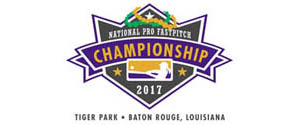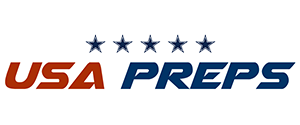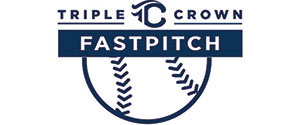12U Rec. Single man mechanics. Bases loaded. Blooper fly ball hit up and between F1, F3, and F4. I called "Infield fly, batter is out if fair". Ball barely lands safely between the three fielders. Right away I feel none of them could have made the catch. Batter runner and all runners advance safely. I then call time and reverse my called infield fly. Coach protested that I could not reverse the call. UIC backed the coach up. The game moved on without a problem.
Can an umpire reverse the called infield fly? Can we implement the infield fly if not called?
Thanks.
The Umpire Corner
The IFF rule was never intended to be a "free" out for the defense. The entire intent of the rule is to protect the offense from the defense purposely letting a ball drop with runners frozen on base and then doubling or tripling them up. So from that standpoint I wouldnt take a whole lot of guff from a defensive coach wanting his free out.
I know of no rule or clarification which states a called IFF cannot be reversed, but that being said since you called it personally I would probably have just left it as such. The rules do allow you to call a delayed IFF if after the fact you feel not calling it put the offense at a disadvantage.
I know of no rule or clarification which states a called IFF cannot be reversed, but that being said since you called it personally I would probably have just left it as such. The rules do allow you to call a delayed IFF if after the fact you feel not calling it put the offense at a disadvantage.
- Comp
- Posts: 589
- Joined: Sun Jun 22, 2008 11:27 am
There are two parts to the infield fly rule. One part is rule; when it applies, when it doesn't. One part is judgment; if the catch can be made by an infielder with ordinary effort.
The part that is rule is like every other rule; if misapplied, it can and should be corrected. If you declare an infield fly with a runner just on 1st, if the ball is uncaught, you cannot declare the batter out. If you fail to call an infield fly because you thought there were two outs when there was only one, or didn't realize there were runners on 1st and 2nd, you must apply the rule correctly.
The part that is judgment is like every other judgment call. If you are willing to reconsider and then possibly overturn your own judgment calls (and deal with the sure-to-follow $hit storm), have at it. Be prepared to be asked to reconsider EVERY judgment call that follows, solely on the basis that they disagree. You can; there is no rule that says you cannot, just that your partner cannot. And there may be a case where you KNOW you missed something so egregiously that you need to. But, I don't think this is that case.
When you declared the infield fly, you assumed the judgment that the ball could be caught by an infielder with ordinary effort. Leave it there.
Edited to add: Ruling above applies to ASA and NFHS. NCAA does NOT allow an undeclared infield fly to be applied after the fact; it does provide to fix the misapplied rule only if declared and could not be by rule.
The part that is rule is like every other rule; if misapplied, it can and should be corrected. If you declare an infield fly with a runner just on 1st, if the ball is uncaught, you cannot declare the batter out. If you fail to call an infield fly because you thought there were two outs when there was only one, or didn't realize there were runners on 1st and 2nd, you must apply the rule correctly.
The part that is judgment is like every other judgment call. If you are willing to reconsider and then possibly overturn your own judgment calls (and deal with the sure-to-follow $hit storm), have at it. Be prepared to be asked to reconsider EVERY judgment call that follows, solely on the basis that they disagree. You can; there is no rule that says you cannot, just that your partner cannot. And there may be a case where you KNOW you missed something so egregiously that you need to. But, I don't think this is that case.
When you declared the infield fly, you assumed the judgment that the ball could be caught by an infielder with ordinary effort. Leave it there.
Edited to add: Ruling above applies to ASA and NFHS. NCAA does NOT allow an undeclared infield fly to be applied after the fact; it does provide to fix the misapplied rule only if declared and could not be by rule.
-

UmpSteve - Premium Member

- Posts: 461
- Joined: Fri Aug 21, 2009 10:38 am
I didn't think you HAD to call anything until after the fact? I see umps calling it while the ball is still in the air but do they have to?
We herd sheep, we drive cattle, we lead people. Lead me, follow me, or get out of my way!
-

Battle - Posts: 1631
- Joined: Sun Apr 25, 2010 10:40 am
Battle wrote:I didn't think you HAD to call anything until after the fact? I see umps calling it while the ball is still in the air but do they have to?
The proper mechanic is for the rule to be called when the ball is at its highest point. Since it exists to protect the runners from the defense intentionally allowing the ball to be uncaught so as to turn an easy double play (remember, the rule is only invoked with two or more otherwise forced runners thinking they need to stay on their base), the offense (coaches, at least, preferably runners, too) need to know if they are forced or not, before the mad scramble with the Keystone Kops begins.
If they hear or see the signal, they can safely stay. If not, they are forced. They need to know.
-

UmpSteve - Premium Member

- Posts: 461
- Joined: Fri Aug 21, 2009 10:38 am
I have another question.
we had a situation with runners on 1st and 2nd. IFF was called. coach didn't hear or see. ball is dropped. yells at runners to run. runner on 2nd runs to 3rd. 2nd baseman throws to 3rd. girl tags 3rd and throws to first not in time. NO tag was made. they thought it was a force. base umpire calls girl out due to force out. she starts to walk to dug out. the coach realizes situation and has her come back to third. now plate umpire say because she started to the dug out she is out.
whats the right call
we had a situation with runners on 1st and 2nd. IFF was called. coach didn't hear or see. ball is dropped. yells at runners to run. runner on 2nd runs to 3rd. 2nd baseman throws to 3rd. girl tags 3rd and throws to first not in time. NO tag was made. they thought it was a force. base umpire calls girl out due to force out. she starts to walk to dug out. the coach realizes situation and has her come back to third. now plate umpire say because she started to the dug out she is out.
whats the right call
- BearsDad
- Premium Member

- Posts: 124
- Joined: Mon Dec 27, 2010 11:06 am
You cannot have a force out when the batter/runner is already out on the IFF. The runner going to 3rd must be tagged out and was improperly called out by the base umpire on a force out. It was an erroneous call by the base umpire that made the runner head to the dugout, time should have been called and the runner placed back on base. For that matter, there is no rule about a runner heading to the dugout automatically being out, except in NCAA I believe which has abandoning the base. But once again, the only reason the runner was headed for the dugout was because of the call by the base umpire.
- Comp
- Posts: 589
- Joined: Sun Jun 22, 2008 11:27 am
I agree with Comp.
All forms of softball have a rule that if the umpire actually puts either team in jeopardy by a reversed or delayed ruling, then the umpires must fix that, making whatever decision(s) are necessary. The base umpire calling her out, and then subsequently reversing that to safe is the only reason she was off her base.
Further, ASA and NFHS don't even consider abandonment of a base by a runner (of her own foolish volition) an out until she enters dead ball territory (usually the dugout). NCAA does relate to whenever it is clear that it is her intent to stop runing the bases.
But, in all these cases, if the original out call is reversed, she isn't out for leaving when she was told she was out. It irritates me when a coach tells a player I called out to stay on the base while they argue their case or ask me to go for help; I consider that somewhat defiant. I shouldn't have remove her a second time when my call stands. And if I am convinced to change my call by a partner I ask for additional information, I will do the right thing and put her where she belongs. But I understand why when they have had these BS rulings before.
All forms of softball have a rule that if the umpire actually puts either team in jeopardy by a reversed or delayed ruling, then the umpires must fix that, making whatever decision(s) are necessary. The base umpire calling her out, and then subsequently reversing that to safe is the only reason she was off her base.
Further, ASA and NFHS don't even consider abandonment of a base by a runner (of her own foolish volition) an out until she enters dead ball territory (usually the dugout). NCAA does relate to whenever it is clear that it is her intent to stop runing the bases.
But, in all these cases, if the original out call is reversed, she isn't out for leaving when she was told she was out. It irritates me when a coach tells a player I called out to stay on the base while they argue their case or ask me to go for help; I consider that somewhat defiant. I shouldn't have remove her a second time when my call stands. And if I am convinced to change my call by a partner I ask for additional information, I will do the right thing and put her where she belongs. But I understand why when they have had these BS rulings before.
-

UmpSteve - Premium Member

- Posts: 461
- Joined: Fri Aug 21, 2009 10:38 am
reconcomm wrote:12U Rec. Single man mechanics. Bases loaded. Blooper fly ball hit up and between F1, F3, and F4. I called "Infield fly, batter is out if fair". Ball barely lands safely between the three fielders. Right away I feel none of them could have made the catch.
Then why did you call the IF? If you changed your mind because none of them got there, that is not a valid reason since there is no requirement for the infielder to catch, touch or even attempt to try and make the catch.
Batter runner and all runners advance safely. I then call time and reverse my called infield fly. Coach protested that I could not reverse the call. UIC backed the coach up. The game moved on without a problem.
Can an umpire reverse the called infield fly?
If the IF is in effect and since the umpire isn't to make that call unless s/he believes the play can be made with ordinary effort by an infielder, pitcher or catcher, I would think attempting to do so would not be advisable.
Can we implement the infield fly if not called?
If in effect, yes. A rule is still the rule and effected whether the umpire declares it in a timely manner or not.
- MTR
- Posts: 2317
- Joined: Thu Jan 03, 2008 5:21 am
Bases loaded, 1 out with a four man umpiring crew. Ball is popped up to deep short, no IFF is signaled by any of the blue. Shortstop has trouble catching the ball even bobbling it a couple of times before it hits the ground. SS then picks the ball up and throws home for the force and the catcher throws to 2nd base and the girl that was on second is tagged, after she momentarily headed for third. Initially both were called out but after a long discussion between the four umps, they rule it was an IFF and that the shortstop purposely dropped the ball. Effect was that Batter was called out for IFF, but all other runners were allowed to stay at their previous base. Now there are two outs and bases still loaded.
Was this done correctly?
Was this done correctly?
If it ain't broke, why fix it??
- Phantomz08
- Premium Member

- Posts: 414
- Joined: Tue Aug 04, 2009 3:53 am
21 posts
• Page 1 of 3 • 1, 2, 3




























